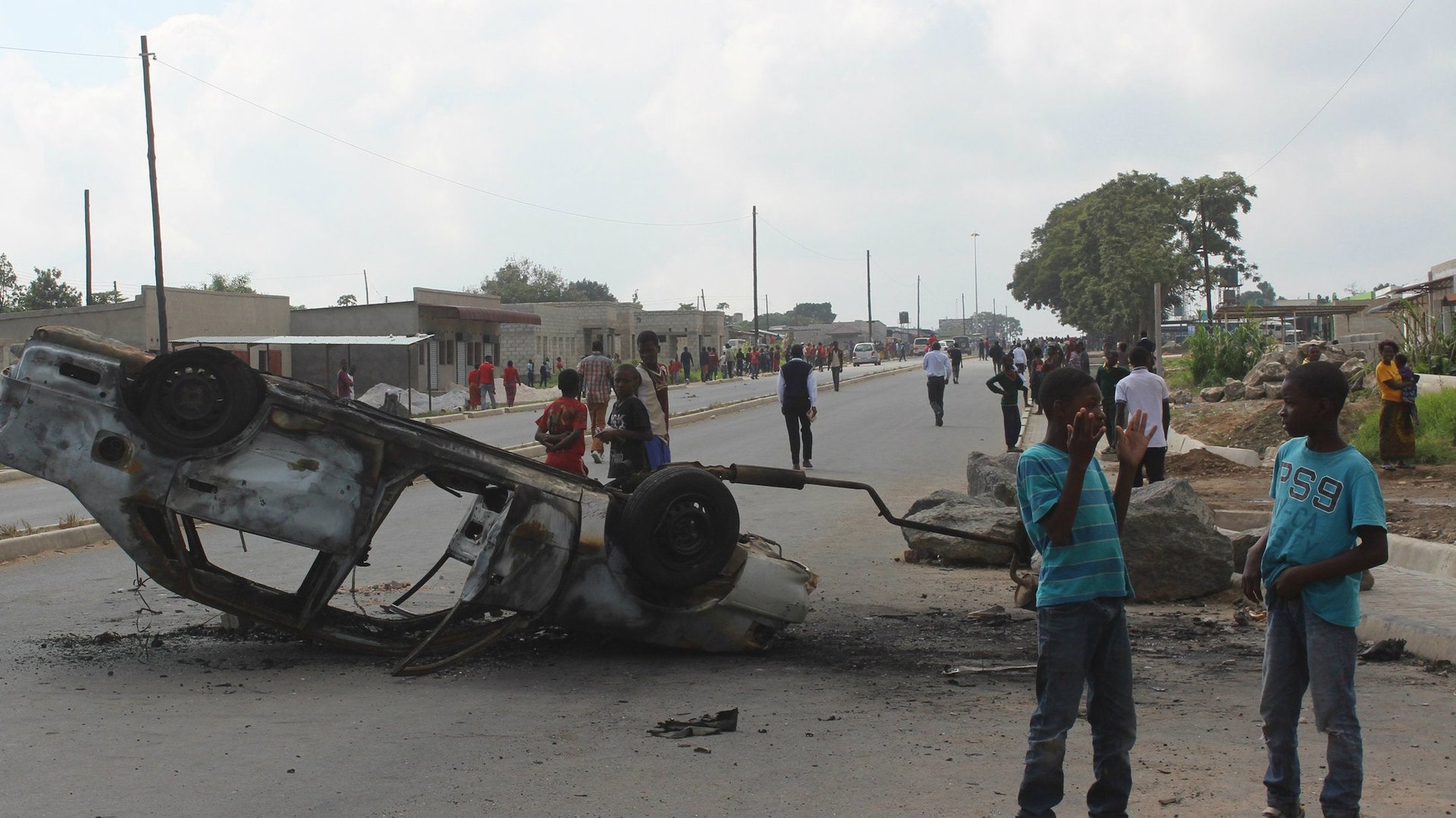Immigrants are under attack in one of Africa’s most peaceful countries
Zambia, a haven of stability in southern Africa, has been rocked by anti-immigrant riots and attacks that have left at least five people dead, including two locals who were burned alive. Attacks on foreign-owned shops erupted in poor neighborhoods in Lusaka on Monday (Apr. 18). By Tuesday, riots had spread to slums across the city. The government has deployed riot police and arrested over 200 people by mid-week. Now, an uneasy calm has settled over the capital city.


Zambia, a haven of stability in southern Africa, has been rocked by anti-immigrant riots and attacks that have left at least five people dead, including two locals who were burned alive. Attacks on foreign-owned shops erupted in poor neighborhoods in Lusaka on Monday (Apr. 18). By Tuesday, riots had spread to slums across the city. The government has deployed riot police and arrested over 200 people by mid-week. Now, an uneasy calm has settled over the capital city.
“I am very ashamed of what has happened,” president Edgar Lungu told immigrants at a church where some had come for shelter. Authorities said the attacks were sparked by rumors foreign entrepreneurs were killing locals to use their body parts as charms in rituals to improve business.
It’s not clear why a country known for stability and where an estimated 200,000 foreigners have lived together peacefully would be the site of xenophobic violence. Rwandans, the largest immigrant group, sought refuge here after the 1994 genocide when 800,000 people were killed. After it was declared safe to return, many still stayed, eventually opening shops and working as traders. Refugees from Burundi and Congo have also sought safety in Zambia.
Before the attacks, the bodies of six Zambians were found, missing body parts like hearts, ears, and genitals. Police have not confirmed whether they were victims of ritual killings but have said that 11 people have been arrested in connection with their deaths. The police cautioned Zambians not to believe rumors that body parts had been found in refrigerators belonging to foreigners.
The government has blamed “unruly and unscrupulous” criminals taking advantage of these rumors and spreading violence, but Zambia’s struggling economy is the more likely culprit. The copper-dependent economy has been hit hard by falling commodity prices. Its currency, the recently resurgent kwacaha, has been one of the world’s worst performing over the past year. Today, Moody’s downgraded Zambia’s credit rating, the second time in seven months. The country, already growing at its slowest rate in 17 years, has been hit hard by droughts that the Peace and Security Council of the African Union have worried could trigger communal violence.
Zambian residents are struggling in the slowdown. With inflation at more than 20%, prices for food staples are high and eating into already low incomes. More than half of the population lives on less than $1.90 a day, according to the World Bank.
“Poverty is being manifested through these attacks targeting shops belonging to foreigners… When you see people walking out of these shops, it’s either they have carried a bag of Mielie-meal [a flour made from maize] and sugar—these basic food items,” said Maxon Nkhoma of Civil Society for Poverty in Zambia.
The attacks could worsen an already vulnerable economy. “The problem that we are faced with is a problem that needs quick action,” Zambia’s information minister Chishimba KambwiliIf said today. “If we do not control this situation where Zambians are beating up or looting shops belonging to investors, we may end up going back to a situation where the kwacha loses its strength and then the economy would be on its knees.”